4201
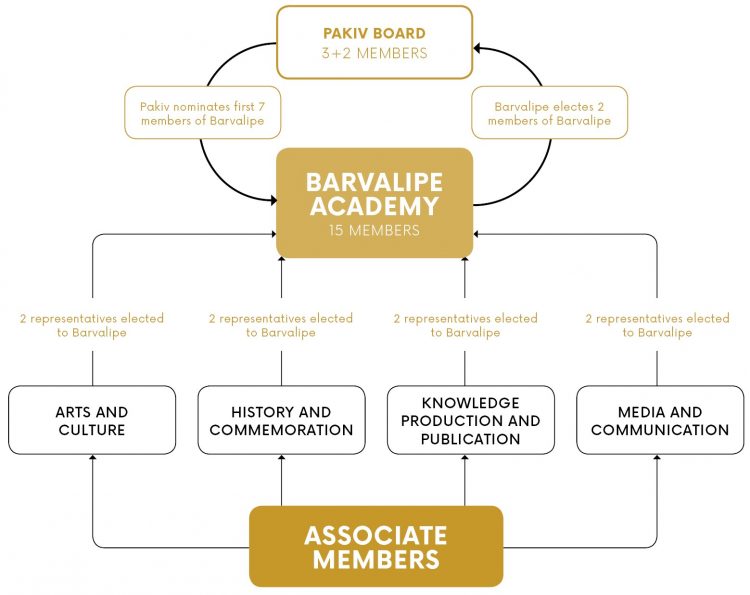
The Pakiv Board is the highest organ of ERIAC. The Board oversees the work of ERIAC, safeguards its values and approves the financial and activity plans.
The members of the Pakiv Board are nominated by ERIAC’s founders: the Secretary General of the Council of Europe (one member), the Open Society Institute (one member) and the Alliance pour l’Institut Rom Européenne pour les Arts et la Culture (one member). Further two members have been nominated by the Barvalipe Academy on their first meeting.
Members of the Pakiv Board Zeljko Jovanovic is the director of the Open Society Roma Initiatives Office, which supports the voices and leadership of Roma in making their power felt in the policy-making arena. Jovanovic comes from a family of Roma ethnic background which, through a belief in hard work, self-determination, and education, moved from multi-generational extreme poverty to the middle class in Serbia. Before joining the Open Society Foundations in 2006, he worked for the Organization for Security and Cooperation in Europe on elections and public policy and for Catholic Relief Services on civil society development. He also has established and led a local Roma organisation and community radio programming, as well as volunteered for Roma political parties and protested for democracy during the Milosevic regime in Serbia. He has also trained and mentored non-profit managers, advocates, and leaders internationally. Jovanovic has degrees in law from the University of Belgrade and in public policy from the University of Oxford. He also completed the Executive Education Program on Strategic Management at Harvard University. He is a member of the Aspen Institute network. Sead Kazanxhiu is a visual artist from southwest Albania. He was trained as a painter at the University of Arts in Tirana (2006 – 2010), where he obtained his bachelor’s degree. Kazanxhiu comes from a family of Roma ethnic minority. This fact has profoundly shaped his childhood years in Baltez, a village nearby Fier, where he was raised in an environment sensitive to social and cultural inequalities. In a community well aware of hierarchical structures and un-privileged positions within a nation-state, the very condition of being an Albanian Roma citizen turned out to be a determining factor for Kazanxhiu’s status of an artist as well as for his overall cultural practice so far. Thus, it comes as no surprise that the issues of prejudice, exclusion, discrimination, and racism have taken center stage both in his artistic and activist work. His uncompromising position with regard to unfair treatment of Roma ethnic group presents but a platform to voice individual dissent about the racially biased dynamics that, unfortunately, continues to shape contemporary European worldviews – on a daily basis, inside and outside of official political arenas. In this sense, his image-making contributes to positive efforts of a single artist to restore the dignity of a community forcefully and unjustly cornered at the outskirts of European democracy. Kazanxhiu is also the founder of STHAN Cultural Centre, and currently, he is following the Albanian School of Political Studies. Gilda-Nancy Horvath is an artist, journalist, project manager, and communications consultant. She started her career in grassroots projects for the Romani community in Vienna, Austria. Soon after, she started working for the Austrian Public National Broadcaster ORF. She has also written numerous articles for the Romani cause and worked with many international projects connected to Romani activism, art, and politics. After 10 years in front of and behind the camera at ORF, she started educating and qualifying young Romani people in her project: “romblog.at,” where she is the Editor-In-Chief. She is also the co-founder of a record label for Romani music, fatherandbastards.com. Since 2013, she is a member of the Romani Dialogue Platform of the Federal Chancellery of Austria, consulting and discussing the implementation of #RomaStrategy2020. Nancy Black is the artist alter ego of Gilda Horvath and produced her first song in December 2016, after being threatened by people who had spread false information about Roma in the media; they claimed that all Roma in Austria would give their support to the far-right candidate at the Presidential Elections in Austria on 04 December 2016. Horvath protested against this kind of manipulation and became a target of hate speech and defamation after that. Her rasping “Trushula” was a clear answer; this was the day Nancy Black was born. Nancy Black also produces video mixes, video installations, and digital/visual art and writing texts and poetry with a strong connection to the language Romanes and the situation of Romani people. . Dr. Ismael Cortés-Gómez is a political philosopher who holds a double academic position as a part-time lecturer at the Unesco Chair of Philosophy (Universitat Jaume I de Castelló) and as a visiting researcher at the Institute DEMOS Paz (Universidad Autónoma de Madrid). He holds a PhD in International Studies of Peace, Conflicts and Development by the UNESCO Chair of Philosophy for Peace at Universitat Jaume I. He has been a researcher at the University of Nottingham, the International University of Andalusia, and the Carlos III University. He has been an expert consultant in the OSCE – ODHIR project “Turning words into action. Combating anti-Semitism and other forms of intolerance (2015-2018)”. He has worked as a policy analyst for think tanks such as the Center for European Policy Studies and the Open Society European Policy Institute. He was a post-doctoral fellow of the Roma Studies Program at Central European University. He coordinated the book Dimensions of Antigypsyism in Europe. Currently, he serves as an MP in the Spanish Parliament. Dr. Cortes also authored several articles in scientific journals and international newspapers. His research interest focuses on the interrelation among law-culture-politics, by analyzing how ideologies constitute institutional norms, policy frames, and action programs. Dr. Cortés-Gómez has worked as a policy analyst for Open Society Foundations from 2016 to 2018, both with the Budapest and the Brussels office; he also collaborates as an associate researcher with the Brussels-based think tank Centre for European Policy Studies. He has published numerous papers in peer-reviewed journals and op-eds with newspapers such as Huffington Post, Le Monde Diplomatique, Euractiv, and El País. His work is deeply engaged with the criticism of new forms of racism and ethnonationalism in the European Union. Mr. Bjørn Berge serves as the Council of Europe’s Deputy Secretary General since 1 March 2021.As the Deputy Secretary General he is involved in a number of key areas of the work of the Organisation, including advising and overseeing the implementation of the Secretary General’s reform agenda, in line with the decisions and priorities of the Committee of Ministers. His priorities include shaping the Programme and Budget, while ensuring that the Organisation’s activities have maximum impact in advancing democracy, human rights and the rule of law. He also oversees the Council of Europe’s staff policy, as well as other key areas of the work of the Organisation. Before taking up his post, Mr. Berge was for a period of four years Director General and Secretary to the Committee of Ministers of the Council of Europe. Between 2009-2017, he served as Director of the Private Office of the Secretary General and the Deputy Secretary General, helping to prepare, co-ordinate and implement a number of comprehensive reforms of the Organisation. Mr. Berge has over thirty years of international professional experience. As a former Norwegian diplomat, he served as International Adviser to the Prime Minister and as Deputy Director of the Foreign Minister’s Cabinet responsible for all matters related to Parliament. He also served as speechwriter to three Norwegian Foreign Ministers. Mr. Berge has published several books on a range of issues relating to speech writing and speeches, as well as articles on the Council of Europe’s mandate and work. He was a Fulbright Scholar and holds a M.A. in International Relations from the Paul Nitze School of Advanced International Studies (SAIS), Johns Hopkins University, Washington D.C., USA.
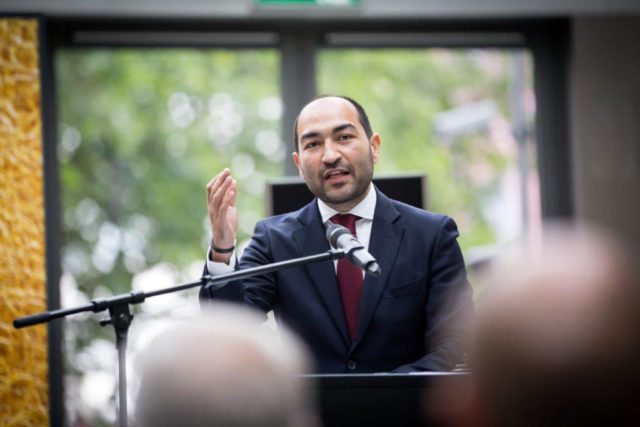
Zeljko Jovanovic
Chair of the Board
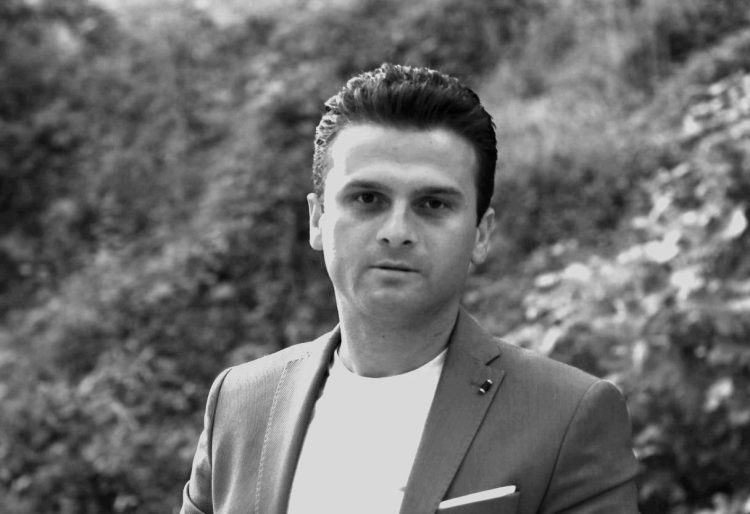
Sead Kazanxhiu
Deputy Chair of the Board
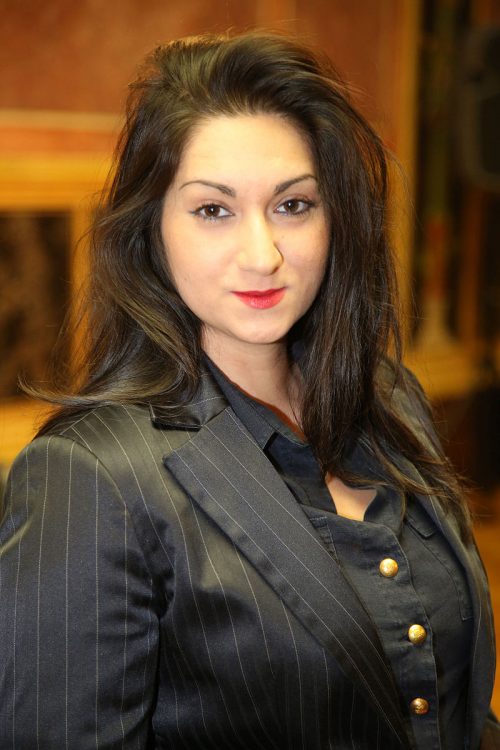
Gilda-Nancy Horvath
Member of the Board
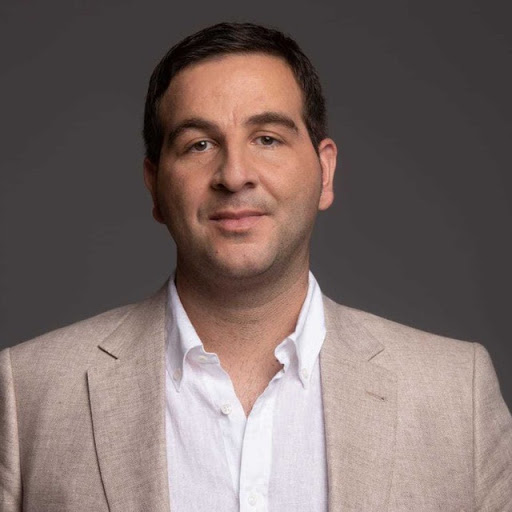
Dr. Ismael Cortés-Gómez
Member of the Board
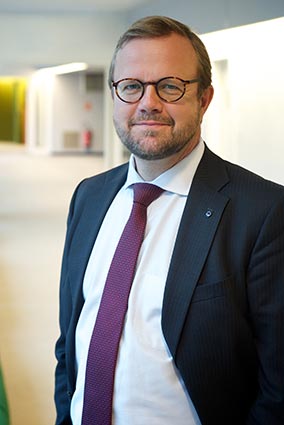
Bjørn Berge
Member of the Board
I Board Meeting_ERIAC_Abridged Report
II Board Meeting_ERIAC_Abridged report
III Board Meeting_ERIAC_Abridged Report
IV Board Meeting_ERIAC_Abridged Report
V Board Meeting_ERIAC_Abridged Report
VI Board Meeting_ERIAC_Abridged Report
VII Board Meeting_ERIAC_Abridged Report
VIII Board Meeting_ERIAC_Abridged Report
IX Board Meeting_ERIAC_Abridged Report
X Board Meeting_ERIAC_Abridged Report
XI Board Meeting_ERIAC_ Abridged Report
XII Board Meeting_ERIAC_Abridged Report
The Barvalipe Academy is the agenda-setting and strategic body of the Institute which has an advisory and inspirational role, in order to fulfill ERIAC’s objectives.
Barvalipe is composed of 15 members – highly regarded, publicly acknowledged individuals, with competencies in the areas covered by ERIAC activities. Two thirds of the Academy members must openly declare their Romani ethnicity, respecting the diversity among the Romani communities. Gender balance must be ensured.
The first 7 members of the Barvalipe Academy are nominated by ERIAC’s Board “Pakiv”. The remaining 8 members of the Baravlipe Academy are elected by the members through the thematic sections. Each section delegates two representatives to Barvalipe.
Two members of Barvalipe Academy, elected internally, are delegated to the “Pakiv” Board and become a bridge which connects the ERIAC’s associate membership with the Board.
Members of the Barvalipe Academy Isaac Blake was born in Bromsgrove and grew up on Gypsy and Traveller sites in Wales and England. He studied and trained dance theatre at the LABAN Dance Centre (now the Trinity LABAN Conservatoire of Music & Dance in London). He went on to study at the Martha Graham School in New York, before working in Montreal, Canada and returning to Wales where he was choreographer for performances at the Wales Millennium Centre, Riverside Arts Centre (Newport) and the Royal Welsh College of Music & Drama. He continues to teach a popular movement and dance course at the RWCM&D (2009 to the present). He is a proud Gay Romany Gypsy and is currently Executive Director of the Romani Cultural & Arts Company in Cardiff, UK, an organisation funded by a variety of major donors, government departments and UK charities (such as the National Lottery Community Fund, Arts Council of Wales, Welsh Government). As Executive Director at the Romani Cultural & Arts Company (RCAC), Isaac has developed arts and performance programmes with communities on Gypsy and Traveller caravan sites, involving young children and adults, worked in schools, colleges, and preschools. Romani Cultural & Arts Company has promoted arts and culture as a medium for empowerment and advocacy throughout Wales with Gypsy, Roma and Travellers. He has engaged widely with non- Gypsy communities to promote dialogue and social cohesion. His leadership and management of the RCAC has seen the organisation grow from a small voluntary group to a major third sector (NGO) agency that leads the Romani and Traveller field in Wales, and is one of the major players in Romani and Traveller advocacy, autonomy and self–determination in the UK. Isaac has also been a Dance Curator, leading a team of academics and researchers in collating items and artefacts for the highly-regarded RomArchive’s Dance Section (https://romarchive.eu). His leadership of the Section ensured the delivery of the project from a diversity of Romani voices, from differing countries. Isaac has been instrumental in supporting LGBTQI Gypsy, Roma, Traveller rights in UK, Europe and beyond. Isaac has supported LGBTQI Gypsy, Roma, and Travellers individuals to attend international events, and Isaac has personally attended such events as advocate and representative of his community, positively promoting LGBTQI recognition and respect. Recently, Isaac co-ordinated and produced the first international LGBTQI GRT spoken history archive, whilst publishing a linked e-book to complement the online archive (see https://romaniarts.co.uk). He continues to study complementary therapies and well-being approaches as a professional and practitioner, combining with he traditional Romani practice of divination in new and innovative ways. Dr. Maria Bogdan received her PhD from the Film, Media and Culture Theory Doctoral Program at the Eötvös Loránd University in Budapest in 2018. She wrote her thesis about the media representation of the Roma in Hungary, and developed a multidisciplinary theoretical approach based on cultural studies for analyzing and understanding the position of Roma in the Hungarian society. Her main research interest is related to media representation, the modern forms of racism, and the questions of diversity. She has published numerous articles in English and in Hungarian related to these topics in international and Hungarian journals. Dr. Bogdan was a visiting researcher at CEU Romani Studies Program in 2018, and prior to that position, she was a researcher at the Hungarian Academy of Sciences (2014-2017) and an assistant lecturer at the University of Pécs (2006-2013). She is also a Fulbright Alumna and completed part of her PhD research at Columbia University in New York. She has also studied journalism and film and has worked as a journalist at different media organisations in Hungary. Dr. Bogdan is one of the founding editors of Critical Romani Studies journal and is a member of the ERCF Board which runs Gallery8 – the first Roma contemporary art space in Hungary. Professor Dr. Ethel Brooks is an Associate Professor in the Departments of Women’s and Gender Studies and Sociology at Rutgers University, New Jersey. She has conducted research on an host of sites around the world including London, Istanbul, Fall River, San Salvador, Dhaka and York City. Professor Brooks is currently working on two book projects: “Disrupting the Nation: Land Tenure, Productivity and the Possibilities of a Romani Post-Coloniality”, and “(Mis)Recognitions and (Un)Acknowledgements: Visualities, Productivities and the Contours of Romani Feminism”, both of which focus on political economy and cultural production and the increasing violence against Romani (Gypsy) citizens worldwide. In 2011 Professor Brooks was awarded a prestigious Fulbright-University of the Arts London Distinguished Chair Award and she spent the academic year 2011/2012 at TrAIN – the Research Centre for Transnational Art, Identity and Nation. Part of the award supported Professor Brooks’ delivery of a lecture series in conjunction with the Tate Gallery, London. Brooks serves as a member of numerous boards and commissions, including the USC Shoah Foundation VHA External Advisory Committee, the RomArchive, the European Roma Rights Centre, and the Rutgers Center for Historical Analysis. She is a member of the US Delegation to the International Holocaust Remembrance Alliance and its Roma Genocide Working Group. In 2016, she was appointed by President Obama to the U.S. Holocaust Memorial Council. Dr Raul Cârstocea is Assistant Professor in Twentieth-Century European History at Maynooth University, Ireland. He has previously worked at the University of Leicester, the Europa Universität Flensburg, the European Centre for Minority Issues in Flensburg, Germany, and at University College London. He has held research fellowships at the Vienna Wiesenthal Institute for Holocaust Studies, the Institute for East and Southeast European Studies in Regensburg, the NIOD Institute for War, Holocaust and Genocide Studies in Amsterdam, King’s College London, and the Imre Kértesz Kolleg Jena. His research interests focus on anti-Semitism, fascism, nationalism, and the Holocaust, and more broadly on state formation and nation-building processes in 19th and 20th century Central, Eastern and South-Eastern Europe and their consequences for minority groups. He is co-editor of the Modern History of Politics and Violence book series at Bloomsbury and Vice-Chair of the Scientific Advisory Council of the Observatory on History Teaching in Europe at the Council of Europe. Tony Gatlif is an acclaimed French film director, screenwriter, composer, actor, and producer of Romani ethnicity. He was born in Algeria in 1948 and came to France in 1960. Starting in 1981, he has tackled the theme he now explores from film to film: Romani people from all over the world, seduced by this “community in movement” and “of great richness and diversity.” He is best known for his films dealing inspired by Romani arts and culture, including “Latcho Drom” (1993), “Gadjo Dilo” (1997), “Vengo” (2000), “Transylvania” (2006) and “Korkoro” (2009). His 2004 film “Exils” won the Best Director Award at the 2004 Cannes Film Festival. He was made a Chevalier de la Légion d’Honneur on 30 March 2015. Dr. Delia Mandalina Grigore is a Rromani woman born 1972 in Galaţi, Romania. She holds a Ph.D. in visual arts, with a specialization ethnography-ethnology from the Romanian Academy, Institute of Ethnography and Folklore in 2004. She is a senior reader at the University of Bucharest, Faculty of Foreign Languages and Literatures, Rromani Language and Literature Section and the President of the Roma Center “Amare Rromentza”. She works in education, Rromology research (e.g. ethnography, ethnology, ethnolinguistics, folklore, oral history, and literature) and Rromani culture fields. She is the author of several works, including Introduction in the Study of Traditional Culture Elements of the Contemporary Rromani Identity (2001, University of Bucharest – CREDIS, Bucharest) and Rromanipen – Keystones of Rromani Culture (2011, Amare Rromentza, Bucharest). She is a team member for the presentation of Rromani Literature in Romania for RomArchive. Sami Mustafa was born in Plemetina, Kosovo in 1984, and in 2011 moved to Lyon, France. He is an independent documentary director and producer, who in 2007 became one of the founders of Romawood production company. He initiated the Jekh Kham Jekh Sel (One Sun One Nation) project in 2007 and the well-known Rolling Film Festival, which has been running since 2009. He is a member of the International Romani Film Commission, the body responsible for fostering Roma cinema and filmmakers. Moreover, in his role as a film tutor he gives young Romani people the opportunity to learn how to express their lives, experiences and identities through artistic methods, and thus to produce documentary films. He is known for his first feature-length film, “Trapped by Law” (Kosovo/Germany), released in 2015. It tells the story of two Romani rap brothers from Essen in Germany who are deported to Kosovo. Nedjo Osman was born in Skopje/Macedonia, in the former Yugoslavia. Osman began his acting career at the Roma theater Pralipe in Skopje. After graduating from the Film and Theater Academy in Novi Sad, he worked as a theater actor at the National Theater KPGT in Subotica and made guest appearances on the stage of the Serbian National Theaters in Novi Sad and JDP Belgrade. Romani Rose (born 1946 at Heidelberg, Germany) is a Romani activist who lost 13 relatives in the Holocaust of the Nazi purges against the Romani people and Jews and is the head of the Central Council of German Sinti and Roma. During the founding of the Central Council in 1982 he was voted to the position of Chairman by the delegates of the member organisations – then 9, now 16 state and regional associations – and since then has been confirmed in his post every four years at the member meetings. From 1991, Rose took over the management of the Documentation and Culture Centre of German Sinti and Roma in Heidelberg. For years he has been known by the federal and state governments for his resoluteness and for his persistent and unyielding work. Together with the Chairpersons of the National Minorities in Germany, Rose leads the Minority Council, which was founded on September 9, 2004. It is the union of the umbrella organisations of the four national minorities which belong to the German nation and have always been resident and autochthonous here. For three decades –since June 1979 to be exact – he has led the work for the civil rights of German Sinti and Roma before the eyes of the German as well as the international public; he has also fought for their protection from racism and discrimination, for compensation for the survivors of the Holocaust – at the same time announcing the magnitude and the historical importance of the genocide of 500,000 Sinti and Roma in National Socialist occupied Europe. In May 1995, in cooperation with the member organisations of the Central Council, Rose achieved recognition for German Sinti and Roma as a national minority in Germany with their own minority language, connected with their goal of equal participation in social and political life. Dr. Iulius Rostas is a Visiting Professor at the Romani Studies Program. Between August 2016 and July 2019, he served as Chair of Romani Studies/Assistant Professor at Central European University in Budapest. He was an Affiliated Fellow with the Institute for Advanced Studies at CEU, Senior Fellow with the Open Society Foundations Roma Initiatives Office and Visiting Lecturer at the Corvinus University of Budapest. He has worked for the Open Society Foundations, the European Roma Rights Center and the Government of Romania and consulted the Organisation for Security and Cooperation in Europe, the World Bank, the European Commission, and the Roma Education Fund. Dr. Rostas published “A Task for Sisyphus: Why Europe’s Roma Policies Fail” (CEU Press 2019) and is the editor of “Ten Years After – A History of Roma School Desegregation in Central and Eastern Europe” (CEU Press, 2012). In 2011 he published “Social Inclusion or Exclusion: the Rights of Persons Living with HIV in Moldova” (Cartier Publishing, 2011). He has published articles and book chapters on Roma participation, Romani identity, Roma school desegregation, Romani movement, and civil society. Kyuchukov is a Professor of Romani language and Intercultural education at the University of Silesia, Katowice, Poland. He has a Ph. D in Psycholinguistics from the University of Amsterdam and two other Ph. D.-s in Education from Bulgaria. Also, he has more than 800 publications in the field of Romani language, minority languages, education of Roma children in Europe, and Roma culture. I have been teaching as a guest professor or as a full-time professor in USA, India, Turkey, Russia, and in almost all European Universities. Santino Spinelli (he is well known as Alexian, his artistic name), is an Italian Rom. Musician, composer, poet, essayist and university teacher, he was awarded the title of Commendatore of the Italian Republic (one of the highest awards conferred by the President of the Italian Republic, he is the only rom in Italy to reveived this important title), as well as the Emilio Lussu Carreer Prize. In 2016 he was awarded the honorary citizenship of Laterza (Taranto). He founded the European Peace Orchestra by elevating Romani folk music to a symphonic level. Graduated in Modern Foreign Languages and Literatures and in Musicology at the Alma Mater Studiorum – University of Bologna, he is the author of numerous publications and articles, including “Roma, free people” (2012), “Roma, these unknowed people” (2016), “A community to know” ( 2018),”The truths denied” (2021). Miguel Ángel Vargas (born 1978, Spain) is a stage director, poet, actor, and researcher. In his work, inspired by the poetics of the old, he uses material and aesthetic elements of the past to influence contemporary contexts; from his point of view, nothing – material or not – dies free of life and of a certain magical influence, especially in the universe of Theater. He earned his degree in Art History from the University of Seville, studied Stage Direction in the the Instituto del Teatro de Sevilla, and currently researching the representation of Roma theater artists on stage (Sevilla and Cádiz, 1746-1845), while also collaborating with international organisations like ERIAC or Central European University for the Roma emancipation through culture and art. Miguel has performed as a theater actor on several stages across Europe; starting in 2001 with Teatro del Velador and Teatro del Duende (Spain), Newcastle Northern Stage (London), and the historic Roma Theater Pralipe (Germany). As well as occupying different positions in the field of being an opera technician at the Teatro Maestranza, a technical director of the Teatro Quintero, and a TV stage manager for the television program Ratones Coloraos in Canal Sur TV. During 2010, he was the production manager of the show Flamenco Hoy, by international filmmaker Carlos Saura. In 2012, he was awarded Young Creators Award by the Instituto de Cultura Gitana of the Ministry of Culture of Spain. Mihaela Zatreanu is probably one of the best Romani language teaching experts among the Roma with a broad outlook at the Romani language field. A graduate of the Pedagogical High School and Foreign Language Faculty in Bucharest, Mihaela has worked in Roma education for the past 15 years, first as a primary school teacher, then as a trainer for Roma and non-Roma educators, and educational inspector at the Ministry of Education. Mihaela Zatreanu has been developing the first curriculum for Romani language in Romania and continued her activity authoring of textbooks, publishing a series of textbooks for Romani language. During 5 years as an educational inspector in the Ministry of Education and Research, she contributed to the designing of the legislative policies for increasing the school participation of Roma, has been monitoring and guiding local programs for supplementary school assistance, and introduced the school mediator for the first time in Romania. Mihaela Zatreanu had an important role in introducing Romani language and history in state schools at national level and for the allocation of special places for Roma students at high school and university level. At the European level Mihaela Zatreanu has been working in cooperation with the Council of Europe as a Chief Executive Officer at the European Roma and Travellers Forum. She was acting several years as the educational expert for the Council of Europe, contributing to the development of the policy paper for the education of Roma children in Europe, developing the Guide for Roma school mediators, teaching materials for preschool education and the Curriculum Framework for Romania Language together with a group of European experts. She has been CoE trainer for school mediation and the National Program Officer of ROMACT program in Romania. The Museum of Roma Culture in Brno was established in 1991, their first permanent exhibit was opened on 01 December 2005. The Museum also offers a space for research and community gatherings. The MRC holds a unique position in the world, due to its long existence and collection and documentation work and is a strong partner of ERIAC. Owing to the experience and the team of experts available at the Museum, the cooperation between the MRC and ERIAC is beneficial and enriching. 1st Barvalipe Academy meeting report, February 5th, 2019, Belgrade, Serbia 2nd Barvalipe Academy meeting report, December 9th, 2019, Berlin, Germany 3rd Barvalipe Academy meeting report, November 16th, 2020, Berlin, Germany 4th Barvalipe Academy meeting report, December 14, 2020, Online: 5th Barvalipe Academy meeting report, September 24, 2021, Online 6th Barvalipe Academy meeting report, November 24, 2021, Online 7th Barvalipe Academy meeting report, January 26, 2022, Online 8th Barvalipe Academy meeting report, December 2, 2022, Online 9th Barvalipe Academy meeting report, April 4, 2023, Online 10th Barvalipe Academy meeting report, November 27, 2023, Online 11th Barvalipe Academy meeting report, February 26, 2024, Online Team of ERIAC Employee ERIAC e. V. Tímea Junghaus is an art historian and contemporary art curator. She started in the position of Executive Director of the European Roma Institute for Arts and Culture in September 2017. Previously, Junghaus was Research Fellow of the Working Group for Critical Theories at the Institute for Art History at the Hungarian Academy of Sciences (2010-2017). She has researched and published extensively on the conjunctions of modern and contemporary art with critical theory, with particular reference to issues of cultural difference, colonialism, and minority representation. She is completing her Ph.D. studies in Cultural Theory at the Eötvös Loránd University, Budapest. In recognition of her curatorial activities, Junghaus received the Kairos – European Cultural Price from the Alfred Toepfer Stiftung F.V.S., in 2008. Her curatorial works include the Roma component of the Hidden Holocaust- exhibition in the Budapest Kunsthalle (2004), Paradise Lost – the First Roma Pavilion at the 52nd Venice Contemporary Art Biennale (2007), the Archive and Scholarly Conference on Roma Hiphop (2010), The Romani Elders and the Public Intervention for the Unfinished Memorial to the Sinti and Roma Murdered Under the National Socialist Regime in the frame of the 7th Berlin Biennale (2012), the (Re-)Conceptualizing Roma Resistance – exhibition and education program in Hellerau, Dresden (2015) and the Goethe Institute, Prague (2016). She is the curator of the Visual Arts Section for RomArchive – Digital Archive of the Roma, funded by Kulturstiftung des Bundes (2015-2018). Junghaus was the founding director of Gallery8 – Roma Contemporary Art Space (www.gallery8.org) in Budapest (2013-2017), the winner of the 2014 Catalyst Contemporary Art Award (of Tranzit Hungary) and the 2014 Otto Pankok Prize awarded by the For Roma Foundation of German writer and Literary Nobel Laureate, Günter Grass. Employee ERIAC e. V. Dr. Anna Mirga-Kruszelnicka is an anthropologist and a Roma activist, born in 1985 in Cracow, Poland. She earned her Ph.D. in Social and Cultural Anthropology at the Universitat Autònoma de Barcelona (UAB) in 2016. She holds an MA in European Integration from UAB and an MA in Comparative Studies of Civilizations from the Jagiellonian University in Cracow (UJ). She is the author of policy evaluations, reports, and articles, co-editor of the “Education for Remembrance of the Roma Genocide: Scholarship, Commemoration and the Role of Youth“ (Libron, 2015) and “Re-thinking Roma Resistance throughout History: Recounting Stories of Strength and Bravery” (ERIAC, 2020) and author of “Mobilizing Romani Ethnicity: Romani Political Activism in Argentina, Colombia, and Spain (CEU Press, 2022). She has been an employee, member, founder, and collaborator of numerous Roma organisations in Poland and Spain. From 2008 to 2012 she was the European project coordinator at the Federation of Roma Associations in Catalonia (FAGIC). From 2013 to 2015 she was an Open Society Foundations Roma Initiatives Fellow, conducting a comparative study of the Roma associative movements in various countries of Latin America and Europe. From 2015 to 2017 she was the coordinator and curator of the Academic Section (aka. Roma Civil Rights Movement Section) in the RomArchive – Digital Archive of the Roma. Between 2017-2018 she was a Post-Doctoral Research Fellow of the Romani Studies Program at the Central European University (CEU) in Budapest. She serves as the deputy director of ERIAC since January 2018. Employee ERIAC e. V. Employee ERIAC e. V. Neven started his professional engagement in 2011 in the Finance sector in Hypo Alpe-Adria-Bank, while in 2015 shifting to the administration and finances of the non-governmental sector on Roma inclusion issues. During his Erasmus+ experience gained at the Roma Decade Secretariat Foundation back in 2015, he professionally engaged in Roma topics. Originally from Varazdin, Croatia, Neven has been actively engaged for many years on various projects dealing with the economic aspect of social inclusion and youth participation at the local and regional levels. Neven has a BA in Management and an MA in Political Economy from the Berlin School of Economics and Law, where he specialized in socio-economic and macroeconomic policies. He graduated with the topic: Impact of austerity measures on Roma Inclusion in Western Balkans – Serbia and North Macedonia. During his studies, Neven was also professionally involved in smaller business entities in Varazdin. Besides his formal education, Neven has also participated in various seminars and educational trainings on the topic of monetary and economic policies, marketing, and collective bargaining. Employee ERIAC e. V. Radu Sticlea is an initiator, art director, and artist with an educational background in Arts & Multimedia. His work journey is centered on highlighting contemporary culture from Central & Eastern Europe while researching and curating the New East – primarily focusing on emerging artists and experimental works from the CEE. As a cultural actor, he has established sustainable partnerships with several international institutions such as Creative Europe Desk, International Visegrad Fund, Romanian Cultural Institute, Canada Council for Arts, Lithuanian Culture Institute, Polish Film Institute, Estonian Contemporary Art Centre, Camões Institute, among others. Since January 2023, Radu has been appointed as the PR & Communications Officer for the European Roma Institute for Arts and Culture. Employee ERIAC e. V. Petro Rusanienko received his M.A. (with honors) from Kiev National University Theater’s Faculty of Cinema and Television of Karpenko-Kary with a specialty in TV and cinema acting. Throughout his acting career, Petro has appeared in roughly 100 cinematic and theatrical works, including performances at the most popular theatres in Kiev. Due to Petro’s interest in the Roma community, he has organized the Roma Youth Forum, Ukraine’s largest cultural event for the Roma, and was awarded the Roma Pride Award for his contribution to Roma culture in Ukraine. Petro has dedicated his motivation and drive to studying at CEU, where he integrated Gender Studies into his profession and use his talent to create projects at the international level. Petro is based in Berlin, Germany. Employee ERIAC e. V. Since 2011, Claudiu embarked on his journey in the NGO sector as a volunteer, progressing to roles as a youth worker, assistant manager, and project manager. Engaging in over 50 projects funded by the European Union, he transitioned into the role of facilitator / trainer, a position he continues to hold to this day. Claudiu earned his bachelor’s degree in Public Administration from Babes-Bolyai University. During his experience at Nevo Parudimos Association, he played a central role in instigating positive change within various communities and effectively coordinated diverse EU-funded projects. Within the same organization, he led the volunteer department, contributing to increase its capacity of the organization to work and accommodate volunteers, while enhancing the NGO’s reputation through impactful initiatives. Through years of experience in the NGO sector, Claudiu has improved his soft skills, enabling him to adapt to any situation and consistently deliver good results in both his work and activities. Claudiu is based in Berlin, Germany. Employee of Evropski Romski Institut za Umetnost i Kulturu Srbija Bratislav joined ERIAC Serbia in 2021 through a REF Internship program working as a graphic designer and communication officer. In April 2021, he became an Office Manager in ERIAC Serbia with the main task of running administrative tasks and leading logistics of the organization of cultural events and, within the ERIAC team, participated organization of large-scale cultural events. As an ERIAC’s RomaMoMA team member, Bratislav assisted in the project with the works of logistics and administration, as well as, graphic design. In 2023, he was promoted to the ERIAC Serbia Program Manager coordinating programs, projects, and events for ERIAC Serbia. As of January 2024, Bratislav has taken on the role of Acting Executive Director at ERIAC Serbia, representing the organization in all external affairs and ensuring transparent communication, as well as managing day-to-day operations, financial oversight, and executing strategic decisions. Bratislav earned his BA in Graphic Engineering and Design at the Faculty of Technical Science from the University of Novi Sad. During his studies, he participated in an entrepreneurship contest, organized by Junior Achievement Serbia, where he won second place in the Regional competition, qualifying for the National competition where he won third place. Bratislav is based in Belgrade, Serbia. Employee of Evropski Romski Institut za Umetnost i Kulturu Srbija Nadja Greku currently serves as the Program Manager at the ERIAC Serbia, having previously held the position of Grants Officer for the ERIACNET4EU project initiative. She pursued MA Studies in International Relations at Central European University (CEU) in Vienna, Austria after obtaining a BA in Sociology from the University of Novi Sad, Serbia. Nadja further enriched her educational background by participating in the Romani Studies program at CEU Budapest. Expanding her academic horizons, she undertook Princeton University courses in Global History and Research Methods, complemented by a study visit to Cambridge University. Her research focus centres on the governmentality and securitization dynamics affecting the Roma population. With substantial experience in economic and human development, Nadja has collaborated with international organizations such as the World Bank, Cambridge University and Regional Cooperation Council. She has authored a book chapter on Roma inclusion strategies and governmentality for the Roma Civil Monitor and written op-eds for publications including LeftEast and the European Roma Rights Centre, addressing issues such as anti-gypsyism, police brutality and Roma political engagement. Nadja is based in Belgrade, Serbia. Employee ERIAC e. V. Having a background in art history and cultural industries, Gabor has been active in the field of culture since 2011. He used to be a project assistant of the artist collective Space Detournement (Budapest, 2011), a research assistant of Budapest100 (2014), organizer-curator of Budapest Architecture Film Festival (Budapest, 2014-21), organizer-coordinator at the sociocultural center Budde-Haus (Leipzig, 2018-22) and a mobility coordinator at Nautas (Leipzig-Berlin, 2020-23). Besides his professional career, Gabor puts an emphasis on voluntary work, having supported various NGOs throughout the years, such as KEK – Hungarian Contemporary Architecture Center, Trafo – House of Contemporary Arts, DOKLeipzig, OFFBiennale, and Human Platform, among others. Gabor is based in Berlin, Germany. The day-to-day operations, as well as ERIAC’s office in Berlin, are run by international, experienced, professional and dedicated team members.
Isaac Blake
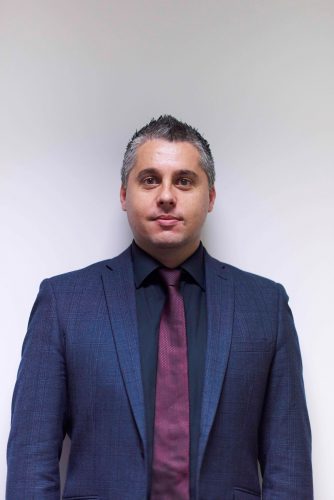
Dr. Maria Bogdan
Chair of the Barvalipe Academy
Prof Dr. Ethel Brooks
Dr Raul Cârstocea
Tony Gatlif
Dr. Delia Madalina Grigore
Sami Mustafa
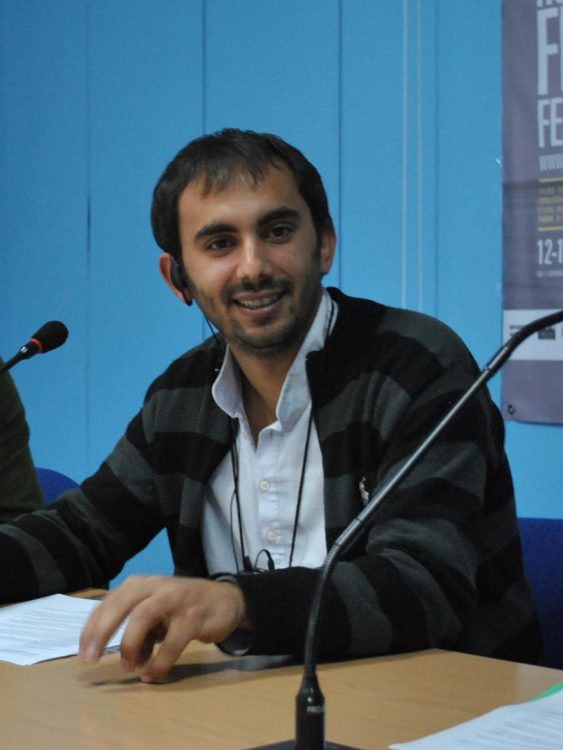
Nedjo Osman
After the outbreak of the war in the Balkans, he came to Germany as a member of the ensemble of the Pralipe Theater at the Theater Mülheim an der Ruhr, where his leading role received outstanding reviews in magazines and newspapers such as Theater Heute, Frankfurter Allgemeine, Frankfurter Rundschau, Süddeutsche Zeitung etc. He took leading roles in many productions from classical to modern for which he received numerous awards.
Osman has performed at various international festivals in Europe, awarded with best critiques as well as numerous awards: the Golden Laurel Wreath at the International Theater Festival MESS Sarajevo in 1991 and for the leading role of Sebastian in the play “Anita Berber” at the Theater Festival in Vojvodina in 1997. In 2003, for the first time, the Yul Brynner Prize was awarded in Berlin and Nedjo Osman was awarded for directing the play “Medea” as well as in his capacity as a Roma actor. In Zagreb in 2017, he received the “Šaip Jusuf” lifetime achievement award. The prize is awarded for the contribution to the development of the Roma community in the field of culture, art and education.
In 1996, after leaving Pralipe Theater, he was a guest actor in many German city theaters such as Cologne, Düsseldorf, Frankfurt, Saarbrücken and many others.
Since 1996 he has been a freelance actor and director and together with Nada Kokotovic acts as the artistic director of the Theater TKO / Choreodrama – Romano Theater in Cologne.
As a journalist, he directed and moderated programs in Romanes at Radio Multi-Kulti in Berlin from 2000 to 2002 and at Deutsche Welle in Bonn from 2002 to 2014.
As a translator into Romanes and as a poet, Nedjo Osman has discovered his passion for writing at an early age. His inspiration is the street, Roma inhabited neighborhoods, experiences with non-Roma and love as a source of beauty. His poems have been published in Serbia, Turkey, Macedonia, Croatia and Germany.
As a long-standing translator of Roma culture, Osman has also acted as a social worker and mediator in various Roma projects in Cologne and many other German cities.
For years Osman has been trying to awaken Roma interest in art as one of the most important elements of Roma culture and identity. He has been working continuously to promote Roma culture and Roma theater among non-Roma in order to change their minds and change the image of Roma.Romani Rose
Dr. Iulius Rostas
Dr. Hristo Kyuchukov

Dr. Santino Spinelli
Deputy Chair of the Barvalipe Academy

Miguel Ángel Vargas
Mihaela Zatreanu
Dr. Jana Horváthová, on behalf of the Museum of Roma Culture in Brno
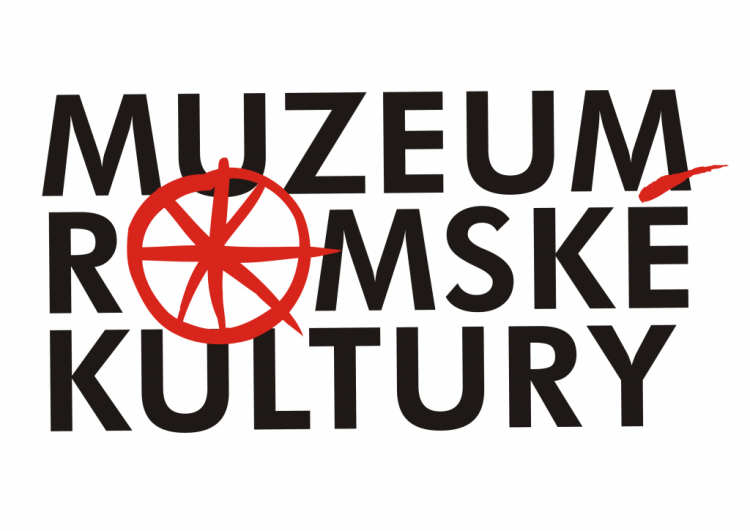
Team of ERIAC

Tímea Junghaus
Executive Director

Anna Mirga-Kruszelnicka
Deputy Director
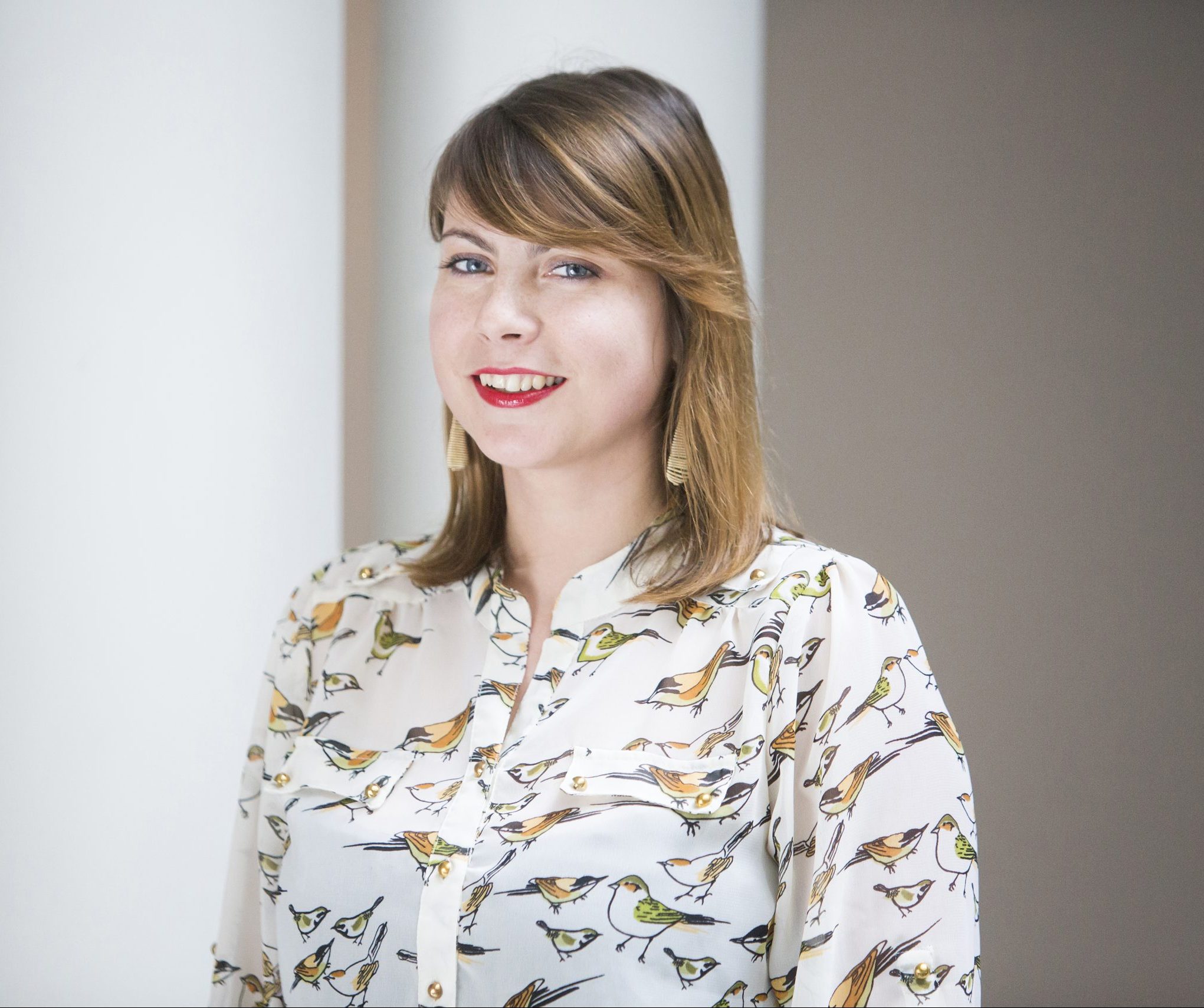
Emese Molnár
Project Manager
Emese Molnár is a sociologist by training with a professional interest and formation on the crossroads of intersecting fields from the more theoretical such as gender and equal opportunities studies, towards the more performative like art and activism. Between the years 2016-2018 she has been a fellow of the Hungarian-Argentinean exchange program of the Argentine Ministry of Education, doing a Master’s degree in Curatorial Studies in Visual Arts at the National University of Tres de Febrero (UNTREF) in Buenos Aires, Argentina. As a production assistant she participated in the organization, production and montage of the exhibition “Take Me, I´m Yours” curated by Hans Ulrich Obrist and Christian Boltanski in the framework of BIENALSUR, the International Biennial of Contemporary Art of South America organized by UNTREF in 2017 in Buenos Aires, Argentina.
Part of her freelance curating endeavors includes a virtual photography exposition held at the KORUNK Gallery in Cluj Napoca, Romania in February 2021 (NY City Visions – Pre-COVID Places and Non-Places). She has been curator in residence at the Museumsquartier Vienna in April 2019, with the support of Tranzit Austria and Erste Stiftung, and beforehand she has contributed to the collective exhibition “100 Years of Parallel Dialouge”, reflecting on the transformative changes of the past decades that affected the different ethnic groups living together in the CEE region (Art Museum of Cluj, Romania in august 2018).
Emese comes from the field of social inclusion and empowerment, having worked 4 years at the Open Society Foundations in Budapest, Hungary. Within the Roma Initiatives program her greatest contribution was the organization of professional meetings and conferences around the theme of anti-gypsyism that paved the way to the founding of the European Roma Institute for Arts and Culture (ERIAC).
She participated in several socio-cultural development projects implemented by ITD / CEPS Projectes Sociales in Barcelona, Spain working on issues of migration, social participation, European capitals of culture and storytelling. In 2011 she was part of the organizing committee of the International Theatre Festival “Interferences” held at the Hungarian Theater in Cluj, Romania.
She joined ERIAC in August 2021 as Project Coordinator for the Roma Pavilion at the 59th Venice Art Biennale to be held between April and November 2022 and is also involved in RomaMOMA, which is a contemporary art project initiating a forum for collaborative reflection on a future Roma Museum of Contemporary Art.
Emese is based in Berlin, Germany.
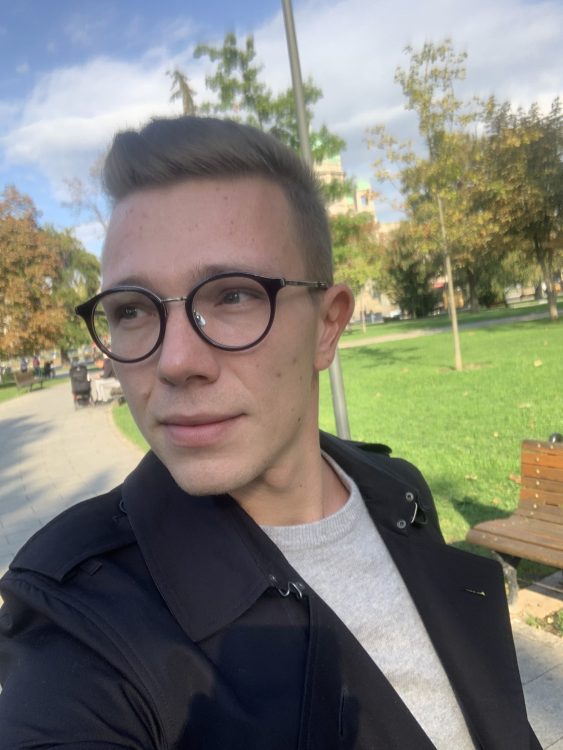
Neven Mesec
Finance Manager
Neven is based in Berlin, Germany.
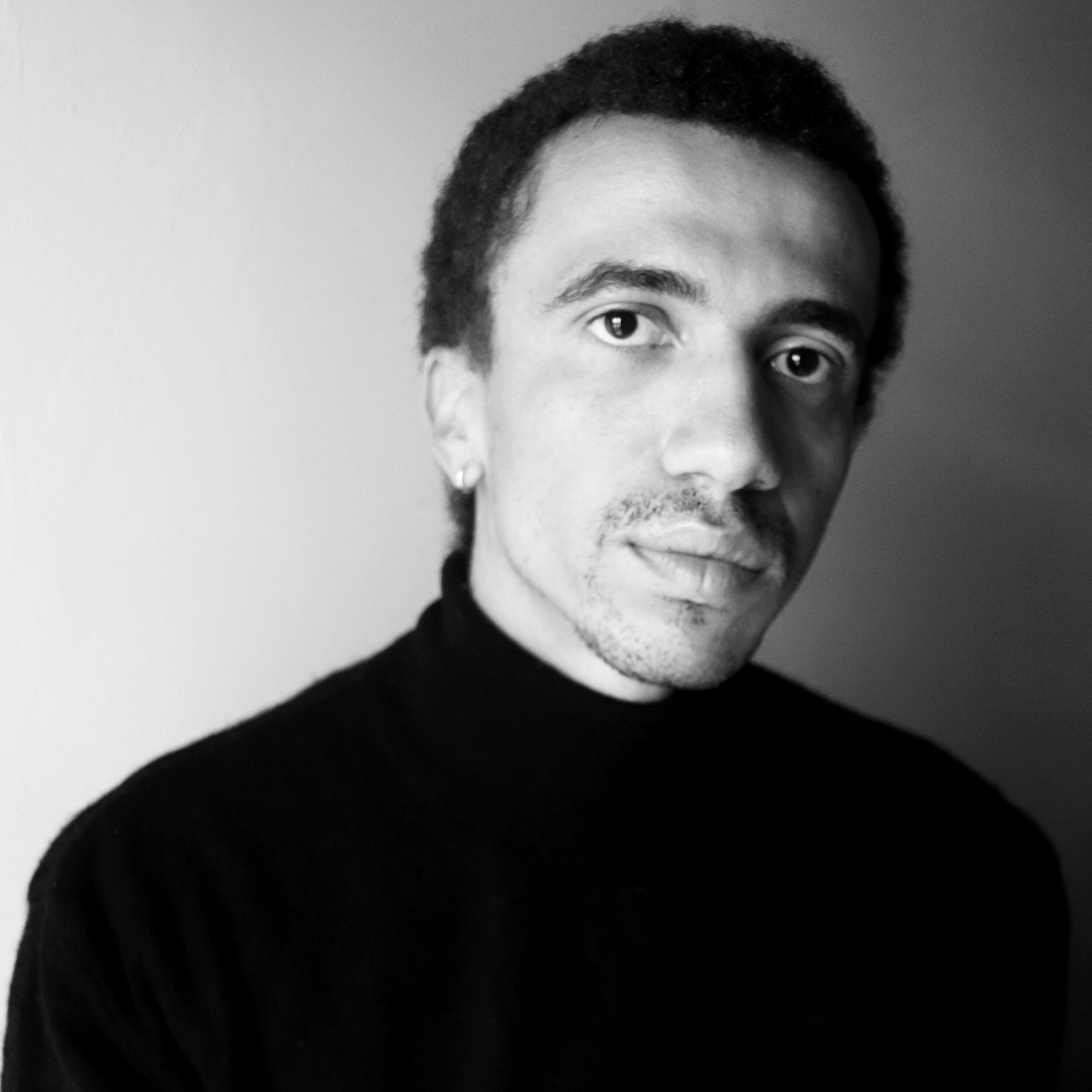
Radu Sticlea
Communications Officer
Radu is based in Berlin, Germany.

Petro Rusanienko
Community Coordinator – Pride and Identity
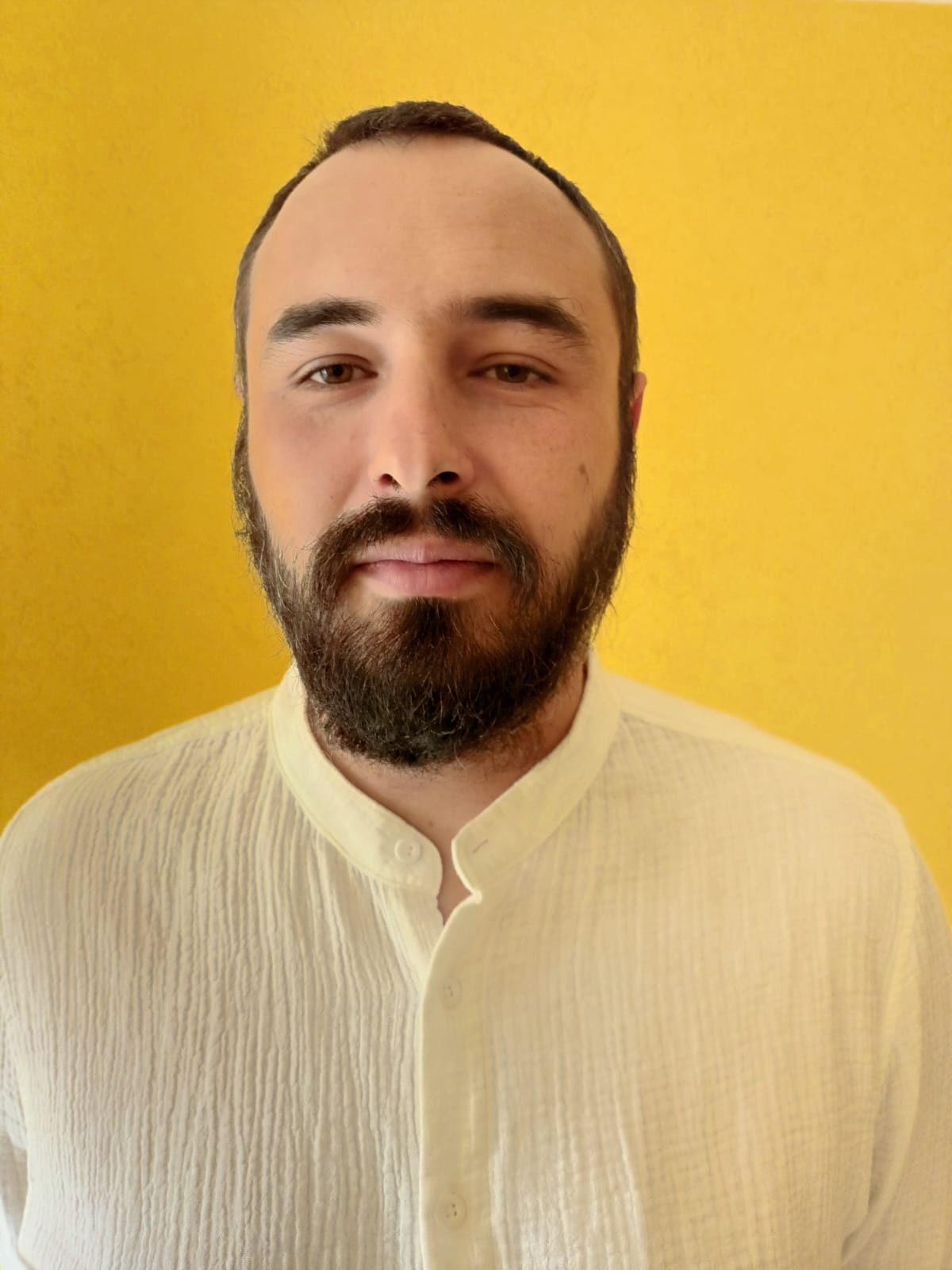
Claudiu Pamfil
Grant Manager
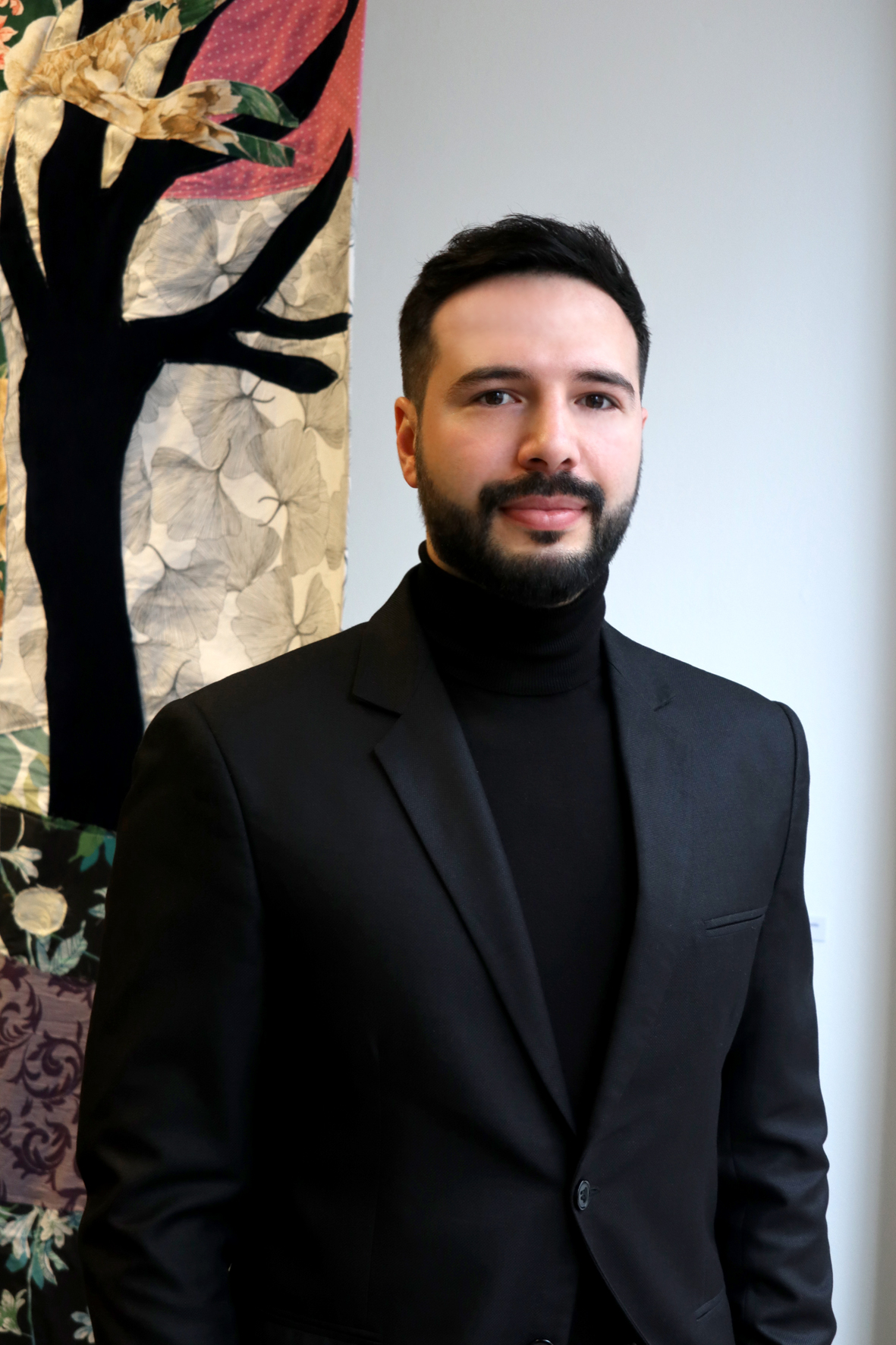
Bratislav Mitrović
Acting Director ERIAC Serbia
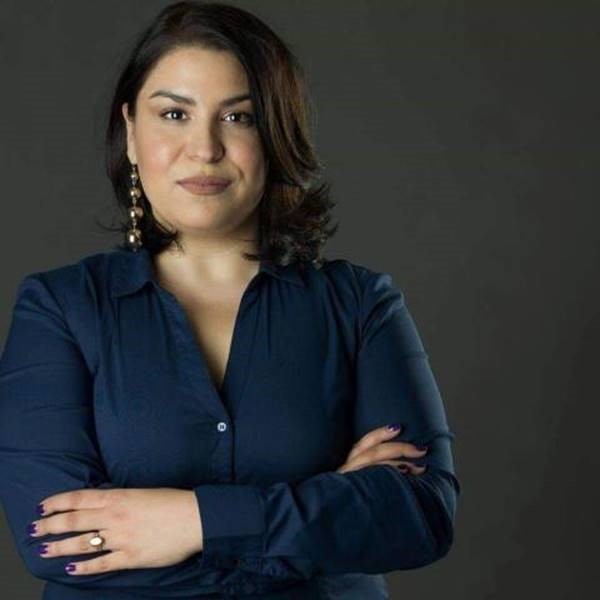
Nadja Greku
Program Manager
Gabor Feher
Office Manager
Interns and Volunteers